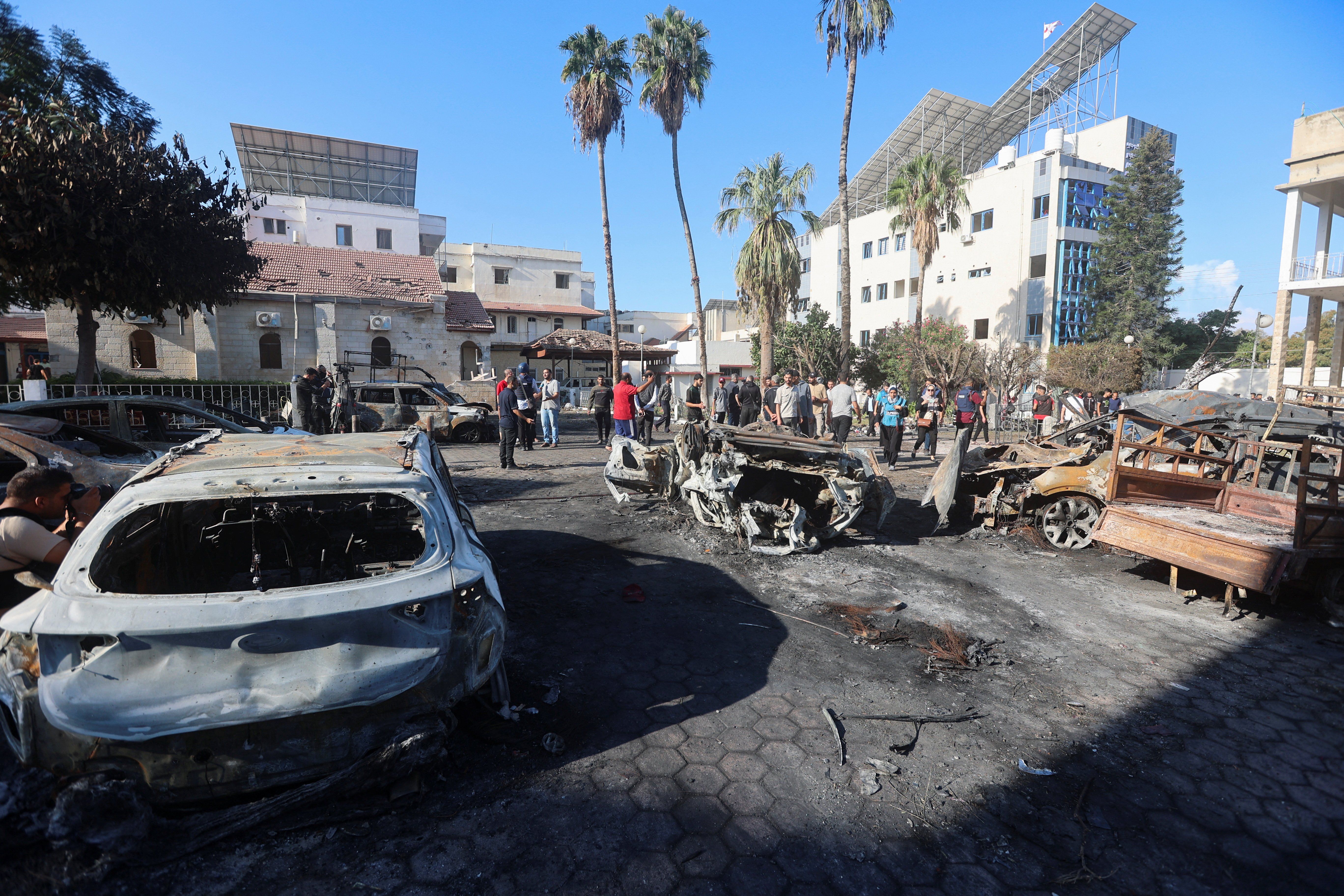October 18, 2023
Hours before US President Joe Biden set off for his trip to Israel late Tuesday, social media erupted with videos purporting to show an aerial strike on the Al-Ahli Hospital in Gaza City. The virtual battlelines formed immediately, with Hamas saying Israel had deliberately bombed the facility and killed 500 people.
Major media outlets published stories repeating the claims before Israel came out with its own version of events: A misfired terrorist rocket hit the hospital. Then came the rush to adjust those headlines and news alerts, but events had already moved well beyond their control.
Arab leaders canceled meetings with Biden, as people spilled into the streets of Beirut, Amman, Cairo, and other Middle Eastern cities following calls for a “day of rage.” Simultaneously, everyone on Twitter suddenly discovered newfound expertise on just how a guided bomb sounds as it falls or whether unburned rocket fuel could create such an explosion.
In the cold light of Wednesday morning, the story looked much different: Photographs of the blast site show a small shallow crater and around a dozen burned-out cars in the hospital parking lot. There’s only light visible damage to the hospital building itself. Gazan authorities still claim hundreds were killed, as many people were sheltering on the hospital campus.
Trouble is, the damage is done. The disinformation ruined Biden’s trip, upended the summit with Arab leaders that could have broken the humanitarian aid impasse, and deepened the divide over the war, both in and beyond the Holy Land. In another world, a successful summit might have saved thousands of lives by shortening the conflict or allowing food, fuel, medicine, and freshwater into Gaza. Instead, hearts are further hardened, and Israel is preparing a ground invasion.
From Your Site Articles
More For You
Most Popular
What's Good Wednesdays
What’s Good Wednesdays™, February 11, 2026
Sponsored posts
Football wins, local economy scores
Walmart sponsored posts
Walmart’s $1 billion investment is strengthening associate careers
Microsoft unveiled a new set of commitments guiding its community‑first approach to AI infrastructure development. The strategy focuses on energy affordability, water efficiency, job creation, local investment, and AI‑driven skilling. As demand for digital infrastructure accelerates, the company is pushing a new model for responsible datacenter growth — one built on sustainability, economic mobility, and long‑term partnership with the communities that host it. The move signals how AI infrastructure is reshaping local economies and what people expect from the tech shaping their future. Read the full blog here.
Armed Israeli soldiers walk through an alley in the Old City of Hebron, in the occupied West Bank, on February 7, 2026. The Israeli army routinely secures routes and gathering points when settlers visit the city.
Photo by Mosab Shawer/Middle East Images/StringersHub/Sipa USA
The Israeli government unilaterally passed measures that allow Jewish settlers to purchase land in the West Bank, overriding past laws that effectively banned the sale of property there to anyone other than Palestinian residents.
Protesters carry posters during a demonstration in support of Palestine at the Asia-Africa Monument in Bandung, West Java. They demand the Indonesian government's immediate withdrawal from the Board of Peace and express solidarity with the people of Gaza and Palestine involved in the conflict with Israel.
Credit Image: © Dimas Rachmatsyah/ZUMA Press Wire
© 2025 GZERO Media. All Rights Reserved | A Eurasia Group media company.
